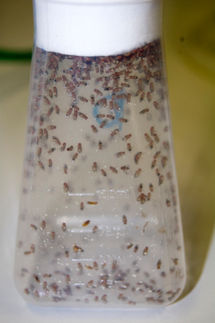Inducible Gene Silencing in Transgenic Rats via RNAi
Advertisement
TaconicArtemis GmbH, a subsidiary of Taconic, announced the publication of a scientific breakthrough achieved in a collaboration with the Universities Goettingen and Wuerzburg (Germany). For the first time it is now possible to inactivate disease-related genes in an inducible and reversible fashion in transgenic rats as rodent model organisms. These important results have been published in “Proceedings of the National Academy of Sciences” of the United States.
The experimental work was performed in collaboration between the group of Professor Holger M. Reichardt, Universities Goettingen and Wuerzburg and TaconicArtemis GmbH, in addition to being supported by a grant from the German Ministry of Education and Science (BMBF).
The publication describes the development of a lentiviral single vector system for the temporal control of ubiquitous shRNA expression. This system was used to silence the insulin receptor gene. The induction of the knock down using the chemical compound Doxycycline resulted in a type II diabetes phenotype. Withdrawal of the inducer compound lead to a reactivation of gene function, which finally resulted in the reconstitution of the health status.
“Up to now the availability of tools for loss-of-function mutations in rats was limited. The only mammalian model organism for which the required tools have been developed during the past twenty years was the mouse” said Dr. Jost Seibler, Head of the RNAi Research Department at TaconicArtemis. “The possibility to modify gene function in transgenic rats represents a major breakthrough which opens up novel scientific possibilities in academic and pharmaceutical research.”
Professor Peter Stadler, CEO of TaconicArtemis said ”The rat is a model organism which is highly relevant for human biology. The new transgenic RNAi models will be effective for the development of therapies to treat severe human diseases and we expect the new methods will find broad applications in pharmaceutical preclinical research and development. Contract breeding and genetic characterization, services offered through our parent company, Taconic, will allow us to make these models available to academia and pharmaceutical companies.”























































